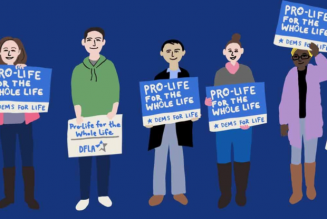Gratitude makes us happier and healthier.
That said, I have some difficulty expressing gratitude, especially as a person who tends toward the melancholic and the critical. This trait can be useful when writing academic papers, but it is often less helpful in close relationships. And so, while scientific studies on gratitude often impress me, they do not always move me to practice gratitude more.
Of course, none of those feelings changes the fact that researchers do think that practicing gratitude is associated with happier and healthier lives (adding the caveat that correlation does not prove causation). Gratitude can improve our emotional life, our relationships, and even our productivity at work.
The Science of Gratitude: Increasing Health and Happiness
A number of scientific studies have documented the gratitude effect:
-
Martin Seligman, from the University of Pennsylvania, designed an experiment comparing behavioral interventions that would improve people’s happiness. Writing and delivering a letter in person to someone who had not been properly thanked for their kindness boosted the participant’s sense of happiness more than any other positive psychology intervention.
-
Researchers from the University of California, Davis, and the University of Miami divided participants into three groups. One group wrote a brief entry each week about things they were grateful for from the week. Another group wrote about things that annoyed them during the week. A third group wrote about emotionally neutral events. After ten weeks, those assigned to the “gratitude group” showed higher levels of optimism, exercised more, exhibited fewer health symptoms, and enjoyed higher well-being.
-
Gratitude also motivates us in the workplace. Adam Grant and Francesca Gino, at the Wharton School, compared different approaches to motivating university fundraisers. In case one, employees made phone calls to alumni soliciting donations. In case two, a manager who did not normally interact with employees thanked fundraisers for the work they were doing. Those who were thanked for their work made twice as many fundraising calls than the group without the speech.
These studies and many others suggest that giving and receiving expressions of gratitude can have a measurable effect on our physical health, emotional energy, the quality of our relationships, and even our productivity.
My General Reaction to Gratitude Studies
Still, I sometimes feel that the gratitude train is little too woo-woo. Something that you tell kindergarteners to practice. (Now, in fact, most of what we tell young children is actually advice that I could probably take!) But perhaps the point is that the whole thing sounded so basic, so simple, so—well—like a school lesson. And so my motivation to actually practice gratitude can remain low.
This is actually not that surprising. Katy Milkman observes in her book, How To Change, that telling someone that something is good for them (or, on the flip side, bad for them) does not usually inspire them to change their behavior.
This is one reason why public health campaigns around healthy food and lifestyles often fail. We all know junk food or fast food is bad for us—but it tastes so good (in the moment) and it’s so convenient! Telling us that junk food is bad for us is just not going to change our behavior. Similarly, simply knowing that eating fruits and vegetables is good for us probably won’t change our actual behavior. Just ask any doctor who tirelessly repeats this to patients.
Making the target habit fun and convenient can lead to better outcomes. But doing a deeper dive into the topic can also be beneficial. Just how important is it to exercise, sleep well, and eat well for good health? Reading in greater detail about these topics—in other words: knowing the why and not just the what—can also lead create some motivation in us to actually change.
Beyond Social Science: A Philosophy of Gratitude
So where does that actually leave us? Should we be expressing gratitude to our teammates because it will have them make more fundraising calls? Should we express gratitude to our spouse because it will make us feel happier? Should we write a letter thanking someone because it will boost our good feelings?
Here, I think, more ancient views on the matter can be helpful. The Greek philosopher Aristotle discusses gratitude in his Nicomachean Ethics (5.5). The Roman philosopher Seneca also writes about gratidue in his letter De Beneficiis (On Benefits). And Thomas Aquinas discusses it in his Summa Theologiae (ST II–II, q. 106). Interestingly, Aquinas discusses gratitude as a part of the virtue of justice.
The ancient definition of the human excellence/virtue of justice is this: to render to another what is their due. The typical example of justice involves the exchange of goods or services for some sort of payment: I give you five dollars and you give me a cappuccino. This sort of justice—justice of exchange or commutative justice—is between equals and it can be legislated. If I take your coffee and don’t pay for it, you would not only have grounds for annoyance, but also for legal complaint.
Justice in the full sense is therefore:
-
Between equals and
-
Subject to the law.
Gratitude as a Part of Justice
Aquinas thought that some activities fall under justice, though in a more limited sense, even if they (1) are not between equals and (2) do not fall under the law.
Case 1. As an example of justice that is not between equals, according to Aquinas, we owe reverence to our parents, to our country, and to God. We can never repay our “debts” to these sources, so justice in these cases is not between equals. I can pay five dollars for a cappuccino but I cannot compensate God for my existence, my parents for my life, or my country for the opportunities it affords.
Case 2. And then there are the cases of justice that are not subject to the law. Gratitude is one of these things. The police are never going to knock on the door of Scrooge and arrest him for being an ungrateful miser. But there is still some moral sense in which gratitude is properly due to others, as he learns. To live out the virtue of justice, in all its part, requires the practice of gratitude.
All of that said, gratitude is due to others precisely for some benefit received—be it the gift of life or a kind smile that we receive on a difficult day. If we can think about what benefits we have received, objectively, from others, we can recognize an opportunity for gratitude. And then we can express it—in a word, in a letter, in a gesture. The expression of the virtue counts. Not because we feel especially bubbly and warm-hearted. But because it is properly due to another.
While gratitude may bring us happy feelings and better health, the objective reason for expressing gratitude is to fulfill justice: to recognize that we have been beneficiaries of the kindness of others and to express that tangibly.
Gratitude as a Celebration of Vulnerability
At its core, the practice of the excellence or virtue of gratitude is a reminder that we are not gods. We are not entirely self-made. We are not entirely self-sufficient. We are not entirely independent from the gifts of others.
We rely on and receive the benefits of others. It is an existential wake-up call and recognition of our finitude, dependency, and limits. And at the same time it is a celebration of those very qualities that provide an opportunity to others to assist us—and us them. Gratitude keeps that wheel turning by showing us what we have received and allowing us, in turn, to pass on that goodness.
To feel gratitude in this sense, as Brené Brown has observed, is an exercise in vulnerability. For we realize that we cannot control the world around us. The roof over our head, the children sleeping safely in bed, the stable job, the security of one’s country—these cannot finally be taken for granted or ever guaranteed.
To have something to be grateful for, truly grateful for, is to have something that can be taken away: life, health, work, friends, family. Or, more basically, food, water, shelter, light, air, security. To be truly grateful for these gifts is to admit that we are not the final masters and exclusive lords of our lives.
If gratitude does not pierce us with a certain terror, exposing the ever fragile beauty of our lives, we have not yet plumbed the depths of this virtue.
So, go ahead—write that letter to someone, express affection for your spouse, give the inspirational speech thanking your team at work. But perhaps we can allow these things to spring from a deeper appreciation of both our radical dependency on the gifts of others and the sheer gratuity of existence, of goodness, of life.
I think, when done well, this practice of gratitude will create a practice of joy.
Something that this melancholic writer is still working on.









